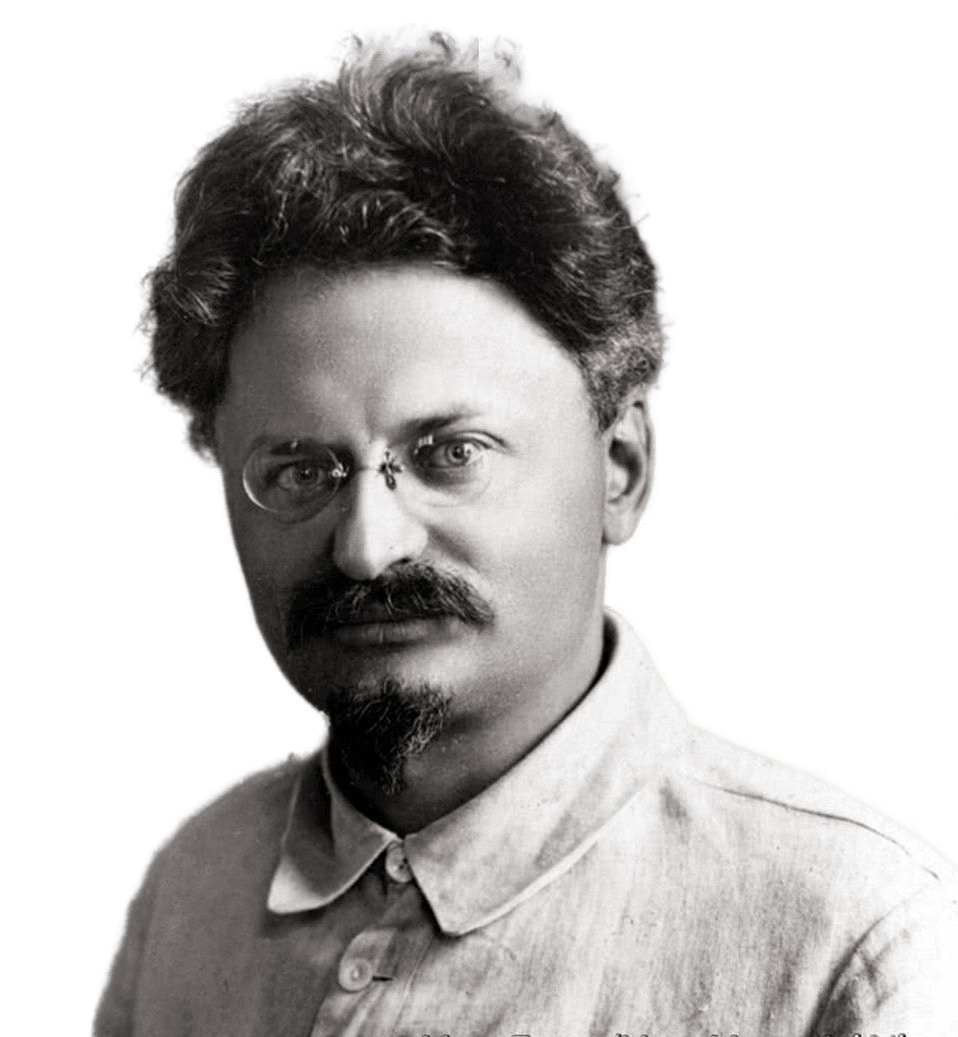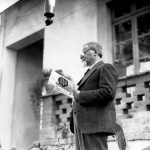
10.01.2023
This year the centenary of the Great October Socialist Revolution, earlier so loftily called in Russia, has been marked quietly, I would say quietly and not solemnly.
Historians of new Russia for 27 years and have not decided whether the revolution was good or evil for the country, justified the success of the state in combination with the bloody Terror and the injustice of the people for more than seventy years. The bulk of Russian society (45 years of age and younger) assesses these events as negative, while others, including the ruling elite (former Communists and Chekists), assess them as positive. In general, what was this – a proletarian revolution, a Bolshevik coup, or a “Jewish conspiracy”? Yes, yes. I did not misspell “the conspiracy of the Rothschilds of Zion”, the Berezovsky and Khodorkovsky of the time. Let us trace how the Jewish participation in the revolution was evaluated by the media in the flow of time. During the years of Soviet power, when the significance of the revolution was exalted to the highest heights, the role of the Jews in those events was diminished and silenced, and if it was mentioned, only in negative terms: Menshevik Jews, revisionist Jews, Trotskyists, enemies of the people, homeless cosmopolites, peddlers and traitors to the fatherland. There were no “sensible” Jews. Jews were referred to by simple Russian surnames and pseudonyms. Who cared to know? Breathe easy, we are internationalists (?!)
After the fiasco of the Soviet Union and the world social system led by it, assessments of the revolution of 1917 changed dramatically. They changed polarly. There was no revolution, there was a revolution, organized by Jews, Jewish Masons, who came from outside and seized power in long-suffering Orthodox Russia. Trotsky (Bronstein) and his followers are to blame for all the misfortunes of Russia. As they say, the Jews – there are only Jews around…Such judgments are still prevalent in the social network, in numerous anti-Semitic websites, videos and other media. Of course, the authorities deny this, at least officially.
In reality, most Jews in Russia did not participate in the Russian revolutions. And those who did, as a rule, had no connection with the Jewish community, with the exception of members of purely Jewish national parties such as the Bund. Prominent Jewish Bolsheviks were never connected with the Jewish masses and never affiliated with any Jewish organization. They were always ardent opponents of the Jewish national and cultural movement, and each of them constantly stressed that he was not a Jew but an “internationalist. They always considered themselves to be Russians and had nothing in common with the Jewish people, except for their origin. And the first of them was Lev Davidovich Trotsky.
His name was given to factories and cities. The creator of the October Revolution, the leader of the victorious Red Army, the closest associate of Lenin, a fierce fighter for a bright future for all mankind – Comrade Trotsky! But already after his first accomplishments, carelessly expressed sympathy for this man threatened him with imprisonment and even with execution.
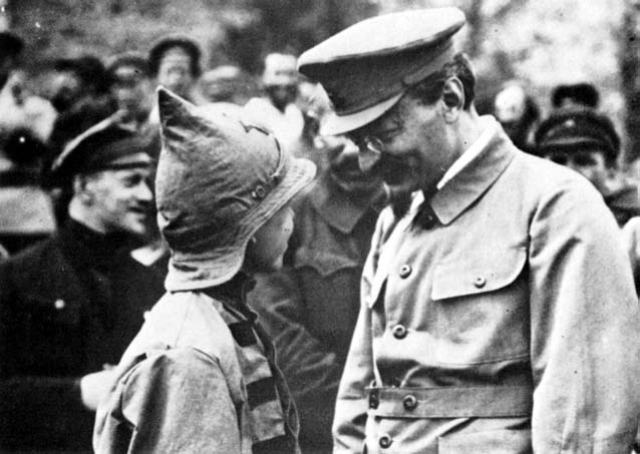

Trotsky tried all his life to get rid of the image of an indecisive and soft intelligent Jew. The Bolshevik movement hardened the intellectual Trotsky, turning him in the eyes of anti-Semites into the demonic embodiment of Judo-Communism. Even in revolutionary circles, which were sympathetic to him, Trotsky was perceived primarily as a Jew. In the 1930s, Trotskyism became synonymous with betrayal and became a bugbear of Stalinist propaganda.
At the beginning of his life, Leiba Davidovich Bronstein, who later became Leon Trotsky, was not much different from many of his peers, Ukrainian Jews of the late 19th century. But at the age of nine, he was sent to cosmopolitan Odessa to study. By eighteen, he was into radical politics – and a life of prison sentences, revolutions, and exiles began. His first marriage was consecrated by a rabbi – and at this point the Jewish events of Trotsky’s adult life were exhausted. His whole business became internationalism, which rejected all national and religious distinctions. It was because of this internationalism that Trotsky was so disgusted by anti-Semitism. This subject has never left his works and conversations. Trotsky did not hide his Jewishness – and his detractors throughout his life did not allow him to forget about it.
If there were no Lenin and me in St. Petersburg, there would be no October Revolution … The socialist revolution is the only realistic solution to the Jewish question. If the Jewish workers and peasants asked for a separate state, that’s fine. But under Britain they did not get it. However, if they do want it, the proletariat will give it to them. We are not honored now, but only a victorious working class can give it to them … I do not know if the Jews can be reborn as a nation. In any case there can be no doubt that the material conditions for the existence of the Jews as an independent nation can only be created by means of a proletarian revolution. There is no such thing on this planet as the idea that one has more rights to land than another. The creation of a territorial base for Jewry in Palestine or some other country is possible only under the condition of large numbers of people immigrating there. Only a victory of socialism can undertake such a task. It can be predicted that this will happen either by mutual understanding or by some kind of international proletarian tribunal that would take up the matter and resolve it.
When I was young, I was inclined to assume that the Jews of different countries would assimilate and that the Jewish question would sort of disappear on its own. The historical development of the last quarter of a century has not borne this out. Decadent capitalism has led to a widespread exacerbation of nationalism, of which anti-Semitism is a part. The Jewish question has become most acute in the most highly developed capitalist country in Europe, Germany. On the other hand, the Jews of different countries created their own seal. They created a Yiddish language to adapt to modern culture. It is therefore necessary to reckon with the fact that the Jewish nation will maintain itself as a nation for a whole era to come. But a nation cannot exist normally without its own country. Zionism grew out of this idea. But the events of each new day show us that Zionism cannot truly solve the Jewish question. The conflict between Jews and Arabs in Palestine is becoming more and more threatening and tragic. I do not at all believe that the Jewish question can be solved within the framework of decadent capitalism and under the control of British imperialism. And how, you may ask me, can socialism solve this question? On this point I can only offer you hypotheses. When socialism becomes the master of our planet, or at least of the most important parts of it, it will have unimaginable possibilities in all fields. Human history has seen an era of great migrations of peoples on the basis of barbarism. Socialism, on the other hand, will create the opportunity for great migrations based on the most advanced technology and culture. It goes without saying that I am not talking about forced relocations, that is, the formation of new ghettos for certain peoples, but about relocations to which these peoples themselves have agreed, or rather, which they have demanded. The scattered Jews who want to come together again will have a large and beautiful place in the sun. The Arabs and all the other scattered peoples of the earth will have such an opportunity. (1937)
Anti-Semitism was quite widespread in tsarist Russia among the peasants, the petty urban bourgeoisie, the intelligentsia, and the more backward stratum of the working class. Mother Russia was not only famous for her periodic Jewish pogroms, but also for the existence of a large number of anti-Semitic publications that were widespread in those days. The October Revolution abolished the disenfranchised status of the Jews. This does not mean, of course, that anti-Semitism was swept away at one blow. All serious and respected observers, especially those who lived among the working masses for a long time, testify to the existence of not only the old and traditional anti-Semitism, but also a new Soviet variation.
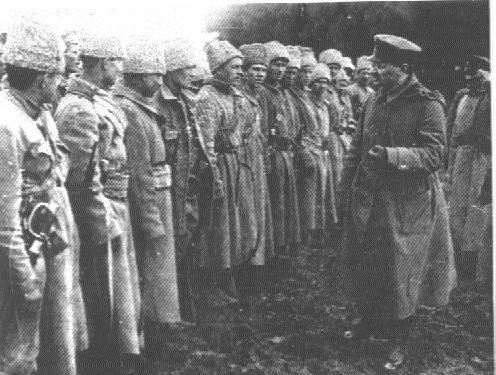
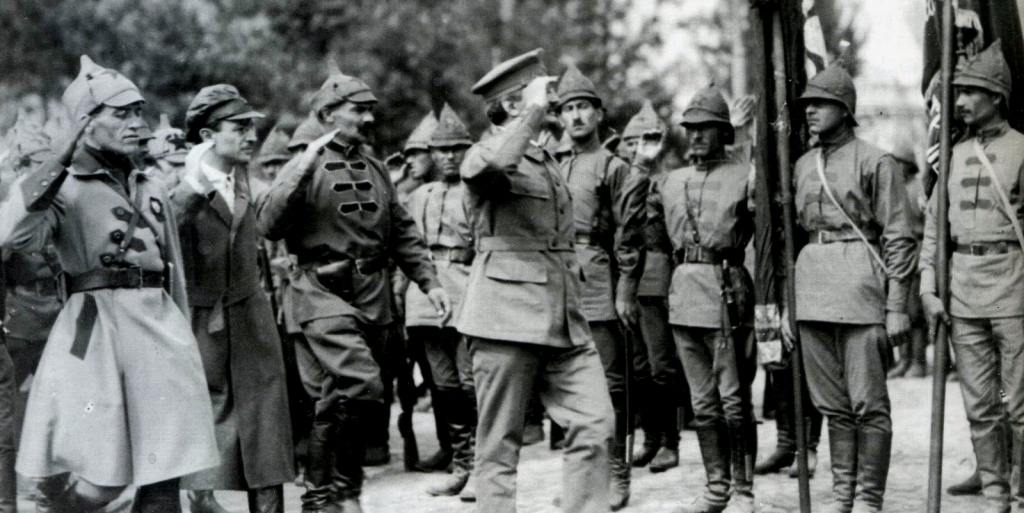
In the months preceding the expulsion of the Opposition from the Party, the arrests, the exiles (the second half of 1927), anti-Semitic propaganda took completely promiscuous forms. The slogan “Beat the Opposition” often took the form of the old slogan: “Beat the Jews, save Russia. Things went so far that Stalin was forced to issue a printed statement saying, “We are fighting against Trotsky, Zinoviev and Kamenev not because they are Jews, but because they are oppositionists,” etc. It was perfectly clear to every politically minded person that this deliberately ambiguous declaration, directed against the excesses of anti-Semitism, was at the same time completely deliberate in feeding them. Do not forget that the leaders of the Opposition are Jews . This was the meaning of Stalin’s declaration published in a Soviet journal…Some pundits have even accused me of suddenly inflaming the Jewish question and of intending to create a kind of ghetto for the Jews. I can only shrug my shoulders compassionately. All my life I have lived outside the Jewish environment. I have always worked in the Russian labor movement. My native language was Russian. Unfortunately, I didn’t even learn to read Yiddish. The Jewish question has never been at the center of my attention. But this does not mean that I have the right to be blind to Jewish problems, which exist and need to be solved…Our descendants will know better than we do what to do. I am referring to a transitional historical period when the Jewish question is still as relevant as it is now and requires adequate measures from the world federation of workers states. A very similar method of dealing with the Jewish question, which is utopian and reactionary when capitalism is decaying (Zionism), will be of real and healing value under a socialist federation regime. This is what I wanted to point out. How can any Marxist or any consistent democrat object to this? (From “Thermidor and Anti-Semitism”, February 22, 1937, The New International May 1941. – A.Z.)
